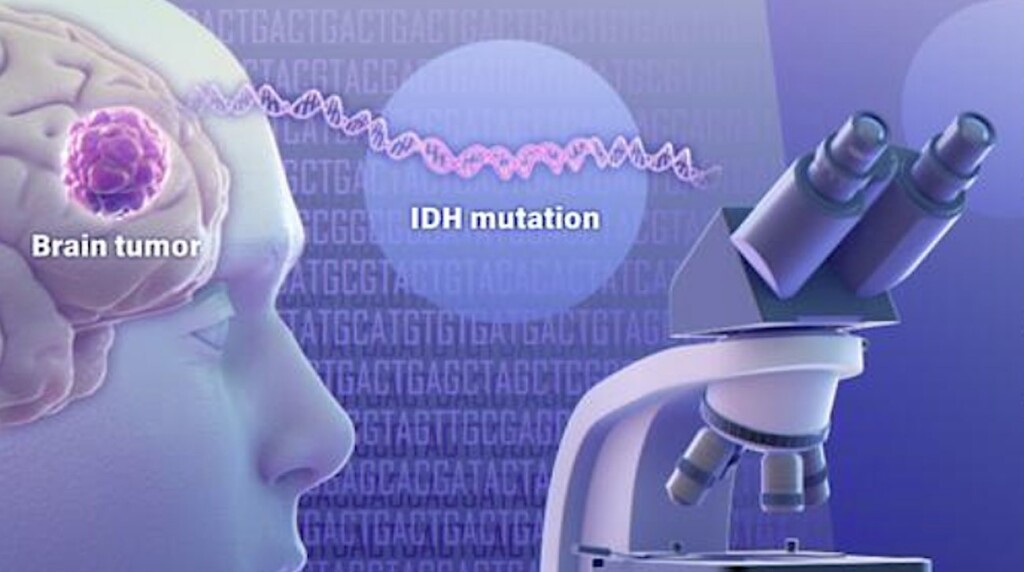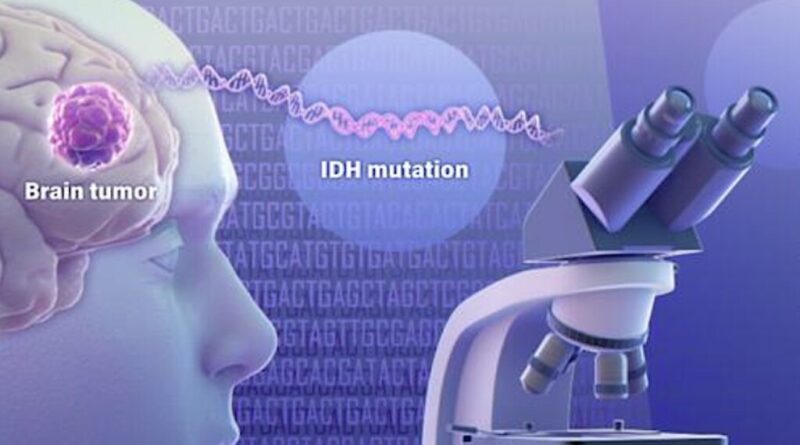FDA Approves Drug That Targets Brain Cancer Mutation That May Delay Need for Radiation and Chemotherapy

A new drug for a type of brain cancer, called IDH-mutant low-grade glioma, was approved this month by the US Food and Drug Administration—a promising treatment that resulted from a genetic discovery made at the Center for Johns Hopkins Cancer 16 years ago. .
The drug, called vorasidenib, is a targeted cancer treatment that works by blocking the activity of a mutated gene called IDH, which slows the growth of cancer.
The gene was identified by Dr. Bert Vogelstein in 2008 when his Hopkins team became the first to map the genetic blueprint for brain cancer. The plan was considered a comprehensive genetic analysis for any type of tumor, testing all known protein-encoding genes in brain cancer.
The researchers found that the IDH gene—which had never been suspected of being involved in any type of tumor—was often mutated in one type of brain cancer.
Standard treatments usually include surgery to remove as much of the tumor as possible, followed by radiation and chemotherapy to attack the remaining cancer cells. But, in some patients, the addition of an IDH inhibitor may delay the need for radiation therapy and chemotherapy.
“The possibility of delaying radiation therapy and chemotherapy with this drug would be beneficial in selecting patients with slow-growing IDH-mutant gliomas,” says Matthias Holdhoff, MD, Ph.D., co-director and Johns Hopkins Kimmel Cancer Center brain tumor. program and a co-investigator in a 2023 clinical trial.
“I believe we are looking at a new approach to care for these types of tumors.”
VOGELSTEIN HAS APPEARED: New Cancer Drug Effective Against Tumors, FDA Approves It Immediately
Findings published last year in the New England Journal of Medicine from a phase 3 clinical trial of vorasidenib concluded that 331 patients with grade 2 IDH-mutant glioma who received the drug had significantly improved survival without progression and that the treatment delayed the time to the next intervention (compared to patients who received placebo).
The right medicine for cancer
The genetic discoveries of Vogelstein and his team have led to what is known as precision cancer medicine where treatments are targeted to each patient’s specific type of cancer.
Not only did this research lead to this drug that was recently approved by the FDA, the discovery of the IDH gene led to a new class of gliomas—differentiating cancers with IDH mutations that have generally better outcomes and treatment response from aggressive gliomas without IDH mutation. , including glioblastoma, the most common brain cancer in adults.
About 80% of low-grade gliomas have an IDH mutation, according to the National Cancer Institute. They include IDH-mutant astrocytoma and oligodendroglioma, and occur more often in young adults. Low-grade gliomas tend to grow more slowly and are associated with longer survival than aggressive, high-grade gliomas.
ANOTHER EVIL: Cancer Vaccine Triggers Strong Immune Response to Fight Malignant Brain Tumors in Human Patients
“IDH is the poster child for cancer gene sequencing, and it shows the importance of research,” says Vogelstein, Clayton Professor of Oncology, Howard Hughes Medical Institute investigator, and co-director of the Ludwig Center. basic.
“Medical history shows that when disease is understood, it is ultimately controlled. It may not be immediately obvious, but over time, as in this case, such discoveries result in better treatment for patients.”
It also paved the way for further studies in other types of brain cancer.
NEWS MORE HOPE: CAR-T Cell Therapy Achieves Nearly Shrinking Brain Cancer Tumor After Five Days
Johns Hopkins University owns the patents related to the discovery of IDH, licensed by Servier Laboratories, which also funded the phase 3 trial. As a result of this license agreement, the University and its inventors, including Dr. Bert Vogelstein, will be entitled to royalties related to the discovery of IDH.
SHARE THE ACTIVITY WITH BRAINIAC Lovers on Social Media…
#FDA #Approves #Drug #Targets #Brain #Cancer #Mutation #Delay #Radiation #Chemotherapy
